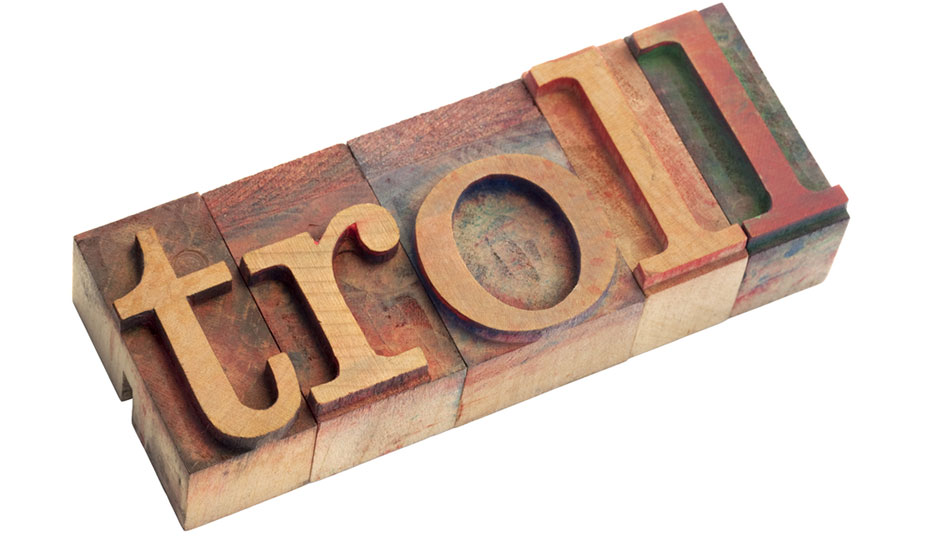Why Do Trolls Especially Hate Women?
If you’re a reasonably well-adjusted person, you probably don’t spend much time in the comments sections of local news stories — maybe not any time at all.
Before we start, here’s a brief recap of what you’re “missing” from most outlets: racist jab, misogynistic non sequitur, left-field Obama rant, casual grumping that suddenly seems cute by comparison.
Citified, for one, is attempting to keep the conversation civil. Philly Mag’s just-unveiled urban affairs channel will strictly moderate the comments on all posts, weeding out not only the obviously hateful, but the garden-variety dumb and unhelpful as well.
I don’t envy whoever is tasked with sorting through that noise, and I can only hope that a morale-boosting desk puppy was part of the deal. But I’m pretty excited for the new approach — especially for someone who doesn’t, as a rule, read the comments.
It’s not that I don’t want feedback. But after years of working at Metro, I realized that even low-level editors at free daily tabloids could inspire some enthusiastic hate mail. If that editor happened to be a woman? All the crazier.
To be fair, the bulk of complaints I received while at Metro were Sudoku related (even on the day we published the wrong election results on the cover, which went pretty much unnoticed). And I wasn’t exactly distressed by the many readers who dropped a line informing me that I should lose the glasses and smile in my headshot — although my equally schlubby male colleagues seemed to avoid this.
What I did mind? Readers who thought that the appropriate response to disagreeing with an M. Night Shyamalan movie review was wishing that I get raped. (Years later, I still wonder what I’m missing about The Last Airbender.)
I’ve noticed an interesting trend: If I write a straight news story or fluffy essay, the comments are tolerable and frequently pleasant. But the second I express an opinion — any opinion — the temperature changes for the rapey-er.
In the name of research, I violated my own policy and spent some time sifting through some recent comments on the world’s least threatening buttercake exposé.
Mostly, there were tips on where to find more buttery cake, which I very much appreciate. Someone pointed out a factual inaccuracy, the kind of thing I want to know and correct. Even the reminder from an anonymous reader that I’m an awful writer who should find a new job was welcome. Like most writers, I am at my core a self-loathing egomaniac with a constant need for affirmation — confirming all of this scratches an extremely hard to reach, neurotic itch. Right there, to the left a little, ahhh — it hurts so good.
But when I write about, say, police brutality? I’ll pass on that comment thread. I’m not paid enough, frankly, but I do know that it’s making my sister angry and, fair warning, she’s more than a little terrifying. What I have a harder time avoiding are the Twitter and Facebook messages that pop up uninvited throughout the afternoon, hoping that I get raped and the cops won’t respond.
After the initial shock of reading these messages, I’m actually not surprised. Threatening women who have an opinion with sexual violence is the faceless Internet’s favorite tactic. If you’re Iggy Azalea, a high-profile hacker group will dangle a sex tape over your head. If you’re a no-name freelancer, random strangers will do their best to make you feel unsafe — and occasionally ask you out on what would presumably be the world’s worst date in the process, which is as weird as it sounds.
Twitter, to its credit, has responded, making it easier to report harassment after a British journalist was bombarded with rape threats after campaigning to get Jane Austen on the £10 note. (Perhaps M. Night Shyamalan would have been less offensive?) Or I suppose I could take a cue from Australian journalist Alanah Pearce, who reached out to the mothers of young boys who threatened to rape her over video game reviews.
Ultimately, I’m cautiously optimistic that we can reclaim the comments for some sort of productive discourse — but it won’t be easy. Until then, I don’t expect Internet trolls to stop spouting racist, misogynist and otherwise awful garbage simply because it’s not nice. But they might remember that it’s really easy to trace a Twitter account — and many of us have terrifying sisters who still read the comments.
Follow @IProposeToast on Twitter.



